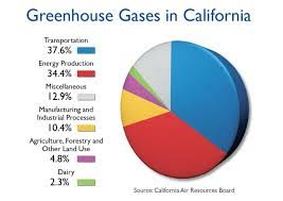 Global Climate summit in Paris 2015 Global Climate summit in Paris 2015 “California has demonstrated time and again that when we set our collective sights, no goal is too ambitious,” Pérez said in a statement. “SB 350 and SB 32 will put California’s creativity and ingenuity to work for the sake of our children and future generations.” Climate work partnering EDF and California’s Global Warming Solutions Act of 2006 (AB 32), was landmark legislation that set a strict statewide limit on greenhouse gas emissions, and confirmed California’s commitment to transition to a sustainable, clean energy economy. The rewards and outcomes are demonstrative since AB32 implementation. There have been advancements in clean energy and energy efficiency including reduced emissions. Currently California is on the road to 50 percent petroleum use reduction. In an article published this month in “California Dream 2.0 by Tim O’Connor, he writes “Fuel combustion chokes our state with exhaust, releases a massive amount of global warming pollution and undermines our economic security.” California drivers spend $50 billion a year on 20 billion gallons of gas, and a majority of the money flows directly out of the state. O’Connor outlines four easy concepts to meet a 50 percent reduction: 1) The growth curve for alternative fuels, and the vehicles that use them, is at an acceleration point—and there is more opportunity for growth. Examples include the private and commercial use of biodiesel, natural gas, electricity and renewable diesel in some government and commercial fleets like Fedex, United Airlines (jet fuel), Waste Management operations like garbage trucks, as well as buses. 2) Cars and trucks are becoming more efficient in using gasoline and diesel—but still room for improvement by an estimated 32 percent by 2025. Vehicles will advance from getting only 32.6 miles per gallon (MPG) to 48.7 MPG. Plug in hybrids like the Chevrolet Volt and Prius electric vehicles get over 100 MPG. 3) Changes in driving habits, new mobility solutions, and coordinated urban planning are meeting transportation needs with more efficient and diversified solutions—and the trend is expected to continue. In 2014 a Caltrans survey revealed Californians are driving less than they did a decade ago by using alternative means like walking, biking, and public transit. The trend is expected to continue. 4) Setting a 50 percent petroleum use reduction standard drives innovation and investment while keeping money in California’s economy (remember big oil profits are channeled out of the state) yielding massive room for additional economic development across the state. California uses more gasoline and diesel than any other state, and 60 percent of the fuel comes from imports, which substantiates the claim that money spent here is being routed out of the state. According to University of California economist David Roland-Holst, every dollar saved at the pump amounts to $16 dollars of net economic activity. The reduction of nine billion gallons of gasoline and diesel purchased in California every year—about a 50 percent reduction—at $3 gallon equals $27 billion saved in fuel purchases in 2030. Or stated another way, $232 billion in net economic activity could be saved. Reducing petroleum use by 50 percent coupled with the decline in driving as people chose alternative methods of transportation are goals worth striving towards. The passage of SB350 is a path towards meeting those goals. Political fights between the state and oil companies have erupted before whenever legislators pushed bills to require better mileage, higher taxes and cleaner fuel. “SB 350 is something entirely different,” said Tupper Hull, spokesman for the Western States Petroleum Association. “It is an attempt to essentially put oil companies out of business,” they said. Fear mongering and threats by big oil in California are not uncommon. They take out “ads warning of state-mandated gas rationing, surcharges on minivans, penalties on people who consume too much gas, and invasion of motorists’ privacy by tapping into their cars’ on-board computers,” all of which is rebuked by legislators as hyperbole. SB350 passed the California Senate by 24-14 vote, but The Assembly is a different situation, and they are enlisting the help of Gov. Jerry Brown. He and President Pro Tem Kevin deLeon will be attending the global climate summit in Paris later this year, and the hope is that SB350 will be law by then putting California in the forefront in curbing climate change and a model for the nation and the globe. Resources Sacramento Bee https://www.edf.org/climate/AB32 http://articles.latimes.com/2014/mar/13/local/la-me-caltrans-study-20140314
1 Comment
|
Dava Castillo
is retired and lives in Clearlake, California. She has three grown
children and one grandson and a Bachelor’s degree in Health Services
Administration from St. Mary’s College in Moraga California. On the
home front Dava enjoys time with her family, reading, gardening, cooking
and sewing. Archives
November 2015
|


